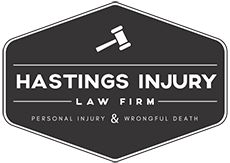By Austin J. Griffin, Esq.
An American institution, the Macy’s Thanksgiving Day Parade will be celebrating its 91st Anniversary this year with miles of spectacle and millions of viewers. However, in its long history and the histories of its sibling parades, more than one incident has brought the unfortunate ubiquity of tort law into focus. Not only do these incidents provide us with a reminder that safety should always be a primary concern in putting on holiday events, they also give answers to questions that may be haunting a prospective plaintiff like that third slice of pumpkin pie.
A Tale of Two Injuries
In its lettered history, two recent incidents in the Macy’s Thanksgiving Day Parade bring to light the different forms of liability and types of litigants that can arise in the same dangerous situation. In the first, two people were hospitalized with severe head injuries, when a Cat-in-the-Hat balloon in the parade collided with a streetlamp along the parade route, dislodging its luminary arm (New York Times). Upon waking from her 24 day coma from the incident, Kathleen Caronna sued Macy’s for $95 million in compensatory damages and $300 million in punitive damages. The case was settled “for an undisclosed amount on the eve of trial.” (New York Times)
In the second, in 2005, an M&M balloon tangled in a streetlamp, breaking a portion off onto two women, Mary and Sarah Chamberlin, who escaped with more minor injuries. Unlike the first, the possible plaintiffs chose not to sue, and were lauded for this decision. The parade director, Robin Hall, responded that “They’re the only family who ever became famous for not suing.” (New York Times)
These two different responses strangely arrive at the same result – neither claim actually made it to trial. Your injury at a parade may make it into litigation, though. When it does, two questions will likely arise for you: (1) Can you sue a parade? and (2) If so, what could you sue it for? Both of these questions will be considered below. great questions!
Can you sue a parade?
To be clear, a parade cannot be sued on its own, but its organizers can be. Even if you find who organized this parade, the parties may seem “untouchable,” whether a city council or huge private corporation. Thankfully, American law allows injured parties to sue even “untouchable” entities in the right circumstances.
Since the beginning of English common law, the system which American law is based upon, the untouchable defendants have been delineated. “The King can do no wrong,” as a classic phrase of immunity presents its argument. (George W. Pugh, Historical Approach to the Doctrine of Sovereign Immunity, 13 La. L. Rev.476, 478-479 (1953), http://digitalcommons.law.lsu.edu/cgi/viewcontent.cgi?

article=2013&context=lalrev.) Yet, while classic sovereign immunity protects governmental functions like lawmaking from outside liability, private parties are not so untouchable. This is true even if they are the purveyors of tradition.
In the case of Macy’s Thanksgiving Day Parade, Macy’s is a private corporation, not a governmental body, so no sovereign immunity attaches. This is true despite their place as an American icon for Thanksgiving. Therefore, an injured party could easily sue Macy’s without concern of a claim falling flat in immunity.
Even in the case of a city-planned event, modern sovereign immunity law in many states has been carved out for parties bringing claims against governments based on the “discretionary function” test or statutory waivers of immunity. Therefore, you may also be able to bring a claim of personal injury from a parade against a local government if it was involved. However, sovereign immunity waivers vary so much from state to state, so make sure to consult with an attorney who knows the law in the state of your injury.
For a good overview of this subject in Florida tort law, please see Amanda Coffey’s article, LOCAL GOVERNMENT SOVEREIGN IMMUNITY 201: FLORIDA, from the American Bar Association. Once it is decided that you can sue a parade’s organizers, the next question is what claim to sue under.
What could you sue a parade for?
Even though sovereign immunity has been controlled in this instance, another question remains: What could you sue Macy’s for? As it happens, the Macy’s parade is ripe for a claim of negligence. Negligence, under the law, is a murky subject. At its most basic, negligence means that the defendant failed to do whatever a reasonable person would do in that situation. Put into other words, the defendant did not act in a way that a normal, practical, and safe person would have in that situation, whether or not they meant to cause harm. (American Bar Association)
There are four basic elements, or parts, of a negligence claim: Duty, Breach, Causation, and Injury. Although each of these elements will be considered in depth in later blog posts here, a parade injury, such as those that happened at the Macy’s Thanksgiving Day Parade, would likely meet each element. The parade organizers would have had a duty to control a large balloon reasonably. The organizers failed to control the large balloon reasonably, so they breach, or fail, that duty. The balloon, not being controlled, hit you or something else, causing you injury, and giving you a negligence claim.
Like all personal injury claims, however, it is the decision of the injured party whether or not to bring suit. You must make that decision, but know that, if you are injured, you may have a claim against even a tradition. After all, the law does not protect traditions on their own- it protects people, and we are thankful for that.
Happy Thanksgiving!
